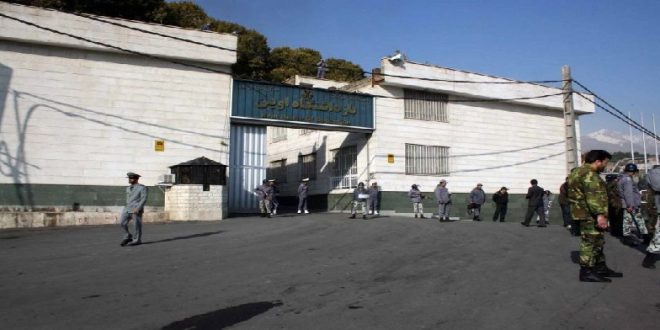11-01-2025
TEHRAN: A Swiss national arrested in Iran and accused of spying has died in prison, according to Iranian state media.
The man was being held with another inmate at a prison in the eastern city of Semnan when he “committed suicide” on Thursday, Iran’s semi-official Tasnim News Agency said.
 The judiciary-run Mizan News Agency said prison officials immediately took action to save the Swiss citizen’s life, but their efforts were unsuccessful.
The judiciary-run Mizan News Agency said prison officials immediately took action to save the Swiss citizen’s life, but their efforts were unsuccessful.
Mizan gave no further detail about the man’s identity.
“This morning, a Swiss citizen committed suicide in Semnan prison,” a statement on Mizan’s website, attributed to Mohammad Sadegh Akbari, Semnan’s chief justice, said.
The statement added that he had been “arrested by Iranian security forces for espionage” and the case was “under investigation”.
The Swiss Foreign Affairs Department confirmed the death, adding that its embassy was in contact with Iranian authorities.
In recent years, Iran’s elite Revolutionary Guards have arrested dozens of dual nationals and foreigners, mostly on charges related to espionage and security.
Switzerland plays an important intermediary role between Washington and Tehran as it represents American interests in Iran and shares messages between the two countries.
At least 901 people were reportedly executed in Iran last year, including about 40 in a single week in December, according to the UN human rights chief.
“It is deeply disturbing that yet again we see an increase in the number of people subjected to the death penalty in Iran year-on-year,” Volker Turk said. “It is high time Iran stemmed this ever-swelling tide of executions.”
The total is the highest recorded in nine years and marks a 6% increase from 2023, when 853 people were executed.
 Most of the executions were for drug-related offences, but dissidents and people connected to the 2022 protests were also executed, according to the UN. There was also a rise in the number of women executed.
Most of the executions were for drug-related offences, but dissidents and people connected to the 2022 protests were also executed, according to the UN. There was also a rise in the number of women executed.
Turk urged Iranian authorities to halt all further executions and to place a moratorium on the use of the death penalty with a view to ultimately abolishing it.
“The death penalty is incompatible with the fundamental right to life and raises the unacceptable risk of executing innocent people and, to be clear, it can never be imposed for conduct that is protected under international human rights law,” he warned.
A spokeswoman for the UN human rights office told reporters that its figures had come from several organizations which it considered reliable, including Iran’s Human Rights Activists News Agency (HRANA), Iran Human Rights (IHR) and Hengaw.
On Monday, Norway-based IHR said in a report that in at least 31 women were executed during 2024, the highest number since it began monitoring the death penalty 17 years ago.
Nineteen of them were sentenced to death after being convicted of murder, according to the report. They included, Leila Ghaemi, who IHR said had strangled her husband after she came home one day to find him and his friends raping her young daughter.
The other 12 women were convicted of drug-related offences. Among them was Parvin Mousavi, who IHR said had been her family’s breadwinner and had been paid about €15 ($15.60) to transport what she was told was medicine, but turned out to be 5kg of morphine. (Int’l Monitoring Desk)
 Pressmediaofindia
Pressmediaofindia




